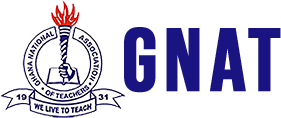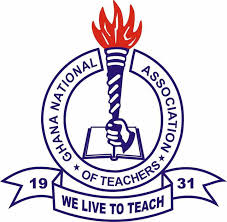A few days ago, the Ghana National Association of Teachers, GNAT, launched the GNAT Week at Sunyani, to herald the actual celebration of the World Teachers Day at the same venue, come October 5. This year’s celebration is on the theme “Teachers Wanted: Reclaiming Teaching and Learning for Human-centred Recovery”.
The World Teachers Day, also known as the International Teachers Day, owes its origin to the Recommendation Concerning the Status of Teachers, adopted by the United Nations Educational, Scientific and Cultural Organization, UNESCO, and the International Labour Organization, ILO, on 5th October, 1966. The Recommendation was premised on applying a set of common standards and measures to teachers wherever they are, and ensure they make use of all the talent and intelligence available as an essential contribution to continued moral and cultural progress, as well as economic and social advancement, all in the contribution to the development of man and modern society.
For the purpose of this write up, we shall define education as the acquisition of knowledge, skills, values, morals, beliefs and habits, both formally and informally in a learning environment (i.e. school) under the guidance and direction of educators (i.e. teachers). In actual fact, the educators should facilitate the process of learning, and ensure that whatever they impart, should have formative effects, in the long run, on the way the learners think, feel and act. In essence, the educator should help the learners to acquire knowledge, competence and virtue, to better themselves and society at large.
How should the educator/teacher fit himself into the scheme of things, and be atop of it? The educator/teacher should regard teaching as a profession – i.e. a form of public service which requires that he possesses expert knowledge and specialised skills acquired and maintained through rigorous and continuing study. He should also know he has personal and corporate responsibility for the education and welfare of the learners (pupils) in his charge.
In addition to the professional knowledge and skills, he should also possess the necessary moral, and physical qualities, and be free from any form of discrimination, on grounds of race, colour, sex, religion, national or social origin, or economic condition. He should be prepared to cooperate closely with parents in the interest of pupils, but be protected against unfair or unwarranted assault, battery and interference by parents in matters which are essentially the teacher’s professional responsibility.
Teachers should be free to devise and make use of such evaluation/techniques as they may deem useful for the appraisal of pupils’ results. They should also exercise the utmost care to avoid accidents to pupils.
The Teacher Training Institutions: The purpose of the teacher-preparation or training programme should be to develop in each student, his general education and personal culture, his ability to teach and educate others, develop in him, an awareness of the principles which underlie good human relations, within and across national boundaries; indeed the Institution should inculcate in him, a sense of responsibility to contribute both by teaching and by example, to social, cultural and economic progress.
The Employer: The employer (and the teachers themselves) should recognise the importance of in-service education, which should be designed to secure a systematic improvement of the quality and content of education and of teaching techniques. Refresher courses should also be provided, as and when necessary.
The organization and structure of the Supervising body – the Education Service, should provide adequate opportunities for, and recognition of additional responsibilities to be exercised by individual teachers, on condition that those responsibilities are not detrimental to the quality or regularity of their teaching work.
Teachers should be guaranteed stability of employment and security of tenure, even when changes are made in the organization of, or within the school system.
Teachers again should be adequately protected against arbitrary actions affecting their professional standing or career.
The Rights and Responsibilities of Teachers: Teachers should enjoy academic freedom, in the discharge of their professional duties. Since they are particularly qualified to judge the learning materials and methods most suitable for their learners, they should be given the essential role in the choice and adaptation of learning materials, the selection of textbooks and the application of teaching methods, within the framework of approved programmes, and with the assistance of the educational authorities.
Teachers and their organizations should participate in the development of new courses, textbooks and teaching and learning materials. Any systems of inspection should help them in the performance of their professional tasks, and should be such as not to diminish their freedom, initiative and responsibilities. They should also be granted study leave on full pay.
The Learning (School) Environment: School buildings should be safe and attractive in overall design and layout, and lend themselves to effective teaching and use for co-curricula activities. The school premises should be properly maintained, so as not to threaten the safety and health of the pupils and teachers, in any way.
Decent housing, preferably free or subsidized, should be provided for teachers, especially in remote and outlandish areas, among other inducements.
Class size should be such as to permit teachers to give the pupils individual attention. These and all others the UNESCO and ILO 5th October, 1966 recommend(ed), concerning the status of Teachers, and the Ghana National Association of Teachers, GNAT, as a Charter/Founding Member of Education International (EI) and reputable Teacher Organization, stands fully by them.
The Ghana National Association of Teachers, GNAT, finds the theme for this year’s celebration, “Teachers Wanted: Reclaiming Teaching and Learning for Human-centred Recovery” very relevant and apt. Ghana, and for that matter, all other countries can progress, if their human resource base are formidably developed; if their people are aware and conscious of their duties and obligations to themselves and the country; if their people have nationalism and we-feeling imbued in them, then and then only would the citizenry be guaranteed a free society in which they would co-exist harmoniously with each other.
And who else to drive this expectation? Teachers, of course! They are the epitome of learning, experience and impartation of knowledge; they and they only can deliver and inculcate human-centred virtues and values in learners who would readily deliver, when they assume the mantle of leadership, when the bell sounds, and help the country to recover from any shocks and uncertainties that may face it.
This being so, then, teachers’ concerns such as salaries, arrears, lack of teaching and learning materials, re-alignment of the teaching and learning processes post-covid-19, should neither be overlooked nor ignored. Teachers must be seen as critical stakeholders and the best done to satisfy them.
On the occasion of this year’s celebration of the World Teachers Day, we wish teachers the best; to the public, we say, If you can read, thank a teacher, and remind the rest of society that, All other professions and professionals can boast, but the teacher taught them all!!
Let us all remember that education makes a people easy to lead, …but difficult to enslave (L.H. Brougham).
Thank you!!
SIGNED AND ISSUED BY
THE GHANA NATIONAL ASSOCIATION OF TEACHERS
THOMAS T. MUSAH
GENERAL SECRETARY
DATED:30TH SEPTEMBER, 2021

